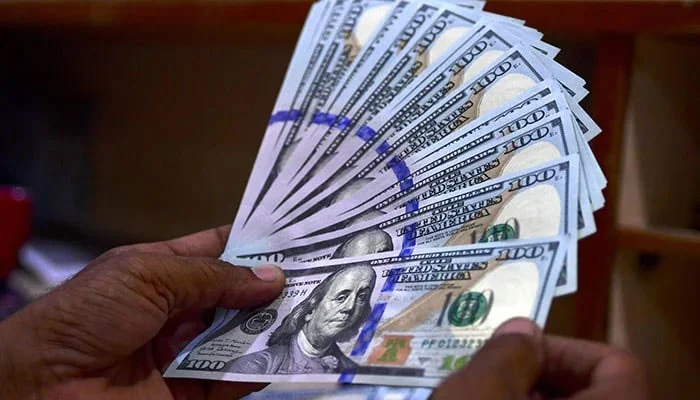In recent years, Pakistan has grappled with economic challenges, including mounting external debt, fluctuating currency value, and a widening trade deficit. To address these issues, innovative solutions are required, and one such proposal gaining traction is the shift towards a gold-based economy. This concept, while not new, could offer Pakistan a unique pathway to financial stability and growth. By leveraging the gold reserves held by citizens and integrating them into the formal economy, Pakistan could unlock substantial economic benefits.
The Concept of a Gold-Based Economy
A gold-based economy operates on the principle that a country’s currency is directly linked to gold reserves. Historically, many countries operated under the gold standard, where currency value was pegged to a specific amount of gold. While this system has been largely abandoned globally, the idea of using gold as a financial asset remains relevant. For Pakistan, utilizing gold as an economic lever could provide a stable foundation for the rupee, reduce reliance on foreign debt, and enhance investor confidence.
Benefits of a Gold-Based Economy for Pakistan
- Stabilization of Currency Value: One of the primary benefits of a gold-based economy is the potential stabilization of the national currency. By backing the rupee with gold, Pakistan could protect its currency from the volatility of foreign exchange markets. This stability would reduce inflationary pressures, making everyday goods more affordable for citizens.
- Reduction in External Debt: Pakistan’s reliance on foreign loans has led to a significant external debt burden. By mobilizing the gold reserves within the country, Pakistan could reduce its need for foreign borrowing. The gold held by citizens could be used to back government bonds or even pay off some of the existing debt, thereby easing the financial strain on the economy.
- Boosting Investor Confidence: A gold-backed economy would likely attract both domestic and international investors. The assurance that the currency is backed by tangible assets could lead to increased foreign direct investment (FDI) and portfolio investments, providing a much-needed influx of capital into the economy.
- Enhancing National Reserves: Mobilizing gold reserves held by private citizens could significantly enhance Pakistan’s national reserves. This increase in reserves would not only improve the country’s financial standing globally but also provide a buffer against economic shocks.
- Encouraging Savings and Investment: By offering citizens the opportunity to contribute their gold to the State Bank, the government could encourage a culture of savings and investment. This initiative could be coupled with attractive interest rates or other incentives, making it appealing for individuals to convert their gold into formal financial assets.
Mobilizing Hidden Gold: A Strategy for Prosperity
One of the key challenges in shifting towards a gold-based economy is mobilizing the substantial gold reserves held by private citizens. In Pakistan, gold is often kept at home as a traditional store of wealth, passed down through generations. This gold, while valuable, remains outside the formal economy. The question then arises: how can the government incentivize citizens to contribute their gold for the nation’s economic benefit?
- Creating a National Gold Deposit Scheme: The government, through the State Bank of Pakistan, could launch a National Gold Deposit Scheme. Under this scheme, citizens would be encouraged to deposit their gold with the State Bank in exchange for certificates or bonds. These bonds could be linked to the value of gold and offer interest payments, providing a secure and profitable investment option for citizens.
- Tax Incentives and Exemptions: To encourage participation in the National Gold Deposit Scheme, the government could offer tax incentives. For instance, individuals who deposit their gold could be exempted from capital gains tax on the interest earned. Additionally, those who participate could receive tax breaks on their income, making the scheme financially attractive.
- Public Awareness Campaigns: A comprehensive public awareness campaign would be essential to educate citizens about the benefits of depositing their gold. The campaign could emphasize the role of gold in national prosperity, highlighting how individual contributions can strengthen the economy and secure a better future for all.
- Security and Trust Measures: Ensuring the safety and security of the deposited gold would be paramount. The government could establish secure facilities for storing gold and offer guarantees on the return of deposits. Building trust in the system would be crucial for its success, as citizens need to feel confident that their assets are safe and will yield benefits.
- Partnerships with Financial Institutions: The State Bank could collaborate with commercial banks and financial institutions to facilitate gold deposits. These institutions could act as intermediaries, making the process more accessible to citizens across the country. Additionally, financial institutions could offer products linked to gold deposits, such as gold-backed savings accounts or investment funds.
Potential Challenges and Solutions
While the benefits of a gold-based economy are significant, there are also challenges that must be addressed for successful implementation.
- Valuation and Pricing: One of the main challenges is accurately valuing the gold deposited by citizens. Fluctuations in global gold prices could impact the value of gold-backed bonds or certificates. To mitigate this, the government could establish a fixed rate for gold deposits or offer hedging options to protect against price volatility.
- Liquidity Concerns: Converting gold into liquid assets could pose challenges, particularly in times of economic stress. To address this, the government could maintain a portion of its reserves in easily liquidated assets, ensuring that it can meet any redemption requests without destabilizing the economy.
- Regulatory and Legal Framework: A robust regulatory framework would be needed to oversee the gold deposit scheme. This framework should include clear guidelines on the handling, storage, and return of gold deposits, as well as mechanisms for dispute resolution.
- Cultural Resistance: In a society where gold is traditionally seen as a symbol of wealth and security, there may be resistance to parting with it. Overcoming this resistance would require not only financial incentives but also a shift in cultural attitudes. The government could work with community leaders and influencers to promote the scheme and build trust.
A Pathway to Prosperity
A gold-based economy offers Pakistan a unique opportunity to address its economic challenges and build a foundation for long-term prosperity. By mobilizing the hidden gold reserves within the country, Pakistan can stabilize its currency, reduce external debt, and attract investment. The success of this initiative would depend on creating a secure, trustworthy, and profitable system for citizens to deposit their gold. With the right strategies in place, Pakistan could turn its gold into a powerful tool for economic growth, ensuring a brighter future for generations to come.




